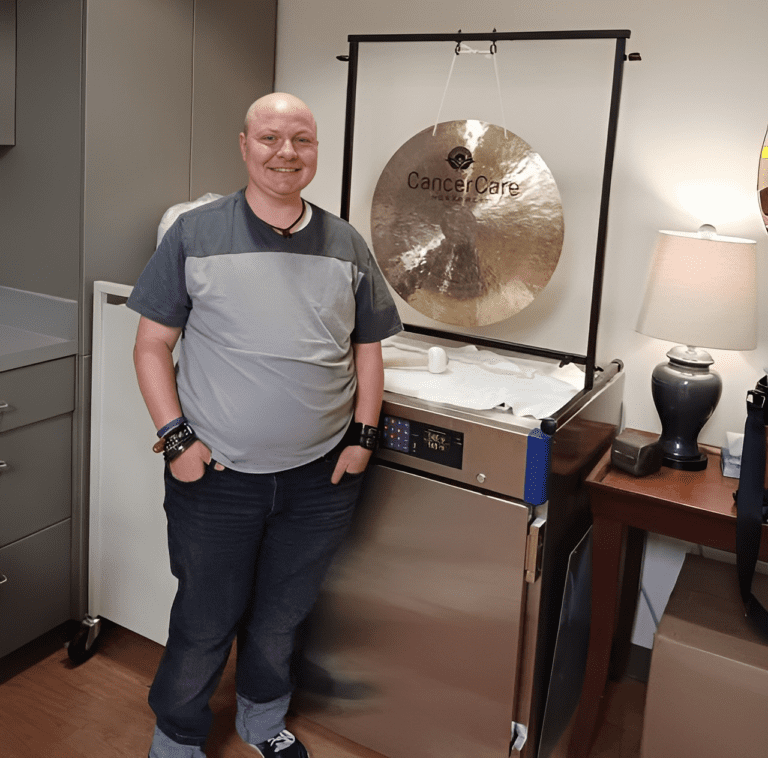
Gli effetti del trattamento del cancro hanno conseguenze sullo stato nutrizionale del bambino. Alcuni bambini perdono molto peso durante il trattamento e sono a rischio di malnutrizione, mentre altri aumentano di peso.
Ma come se la cavano i bambini dopo il trattamento?
Il loro stato nutrizionale si ristabilisce o gli effetti del trattamento del cancro, come il sovrappeso, sono permanenti?
Queste domande sono state al centro di uno studio pubblicato di recente.
Stato nutrizionale
I ricercatori infermieri Aeltsje Brinksma e Wim Tissing, oncologo pediatrico e responsabile delle cure di supporto, hanno condotto la loro ricerca su bambini che erano stati originariamente trattati all’UMCG. Si trattava di un gruppo di bambini di età compresa tra 0 e 18 anni con una patologia ematologica, un tumore cerebrale o un tumore solido.
Spiega Aeltsje Brinksma: “Abbiamo raccolto dati sullo stato nutrizionale alla diagnosi, un anno e sette anni dopo la diagnosi. I bambini sono stati misurati in questi momenti, hanno compilato dei questionari da soli o insieme ai genitori e hanno tenuto un diario alimentare. Altri dati sono stati raccolti dalle cartelle cliniche. In questo modo abbiamo ottenuto dati precisi su peso, altezza, IMC, massa grassa e massa non grassa e fattori come età, sesso, tipo di tumore, apporto nutrizionale e attività fisica”.
Peso e massa grassa in eccesso
I dati sono stati analizzati e i ricercatori hanno osservato differenze significative. Nei bambini affetti da cancro ematologico e tumore cerebrale, il BMI ha continuato a crescere dopo la fine del trattamento. Questo ha quadruplicato la percentuale di sopravvissuti in sovrappeso sette anni dopo la diagnosi.
Aeltsje commenta: “Abbiamo calcolato che il 27,3% dei bambini era in sovrappeso dopo la fine del trattamento. Questo dato è superiore al 15,5% e al 18,6% dei bambini e degli adolescenti nei Paesi Bassi. I chili di troppo e la massa grassa acquisiti sono scomparsi durante il trattamento, ma non dopo la fine dello stesso”.
Rischio di sottopeso e sovrappeso
Una conclusione importante di questo studio è che i bambini che diventano più pesanti e sviluppano massa grassa extra durante il trattamento non la perdono dopo la terapia. I fattori che influenzano l’aumento di peso o di massa grassa sono il tipo di tumore (ematologico e cerebrale), l’IMC più basso alla diagnosi e l’IMC più alto della madre.
Aeltsje Brinksma sottolinea: “È importante che durante il trattamento si presti attenzione non solo al rischio di malnutrizione, ma anche al rischio di sviluppare sovrappeso. Anche se nello studio non abbiamo trovato una correlazione diretta tra l’assunzione di cibo (mangiare molto o in modo non salutare) e l’aumento di peso, è importante prestare attenzione a una dieta sana e a un sufficiente esercizio fisico durante il trattamento”.
Per i bambini e i genitori si tratta di un messaggio difficile. Soprattutto perché i bambini a volte hanno periodi di inappetenza e mangiano poco, sono autorizzati a mangiare più cose ‘malsane’, il che è molto logico. È davvero una sfida continuare a mangiare ‘sano’ quando il cibo ha un sapore diverso o continuare a fare esercizio e sport quando ci si sente stanchi e infelici”.
Ricerca di follow-up
Attualmente, presso il Princess Máxima Center è in corso una ricerca di follow-up in cui viene mappato il metabolismo dei bambini, oltre all’apporto nutrizionale e all’attività fisica. Questo studio potrebbe fornire indicazioni ancora più precise su come si sviluppa il sovrappeso e su come si può prevenire.









Comments
Thank you. Comment sent for approval.
Something is wrong, try again later